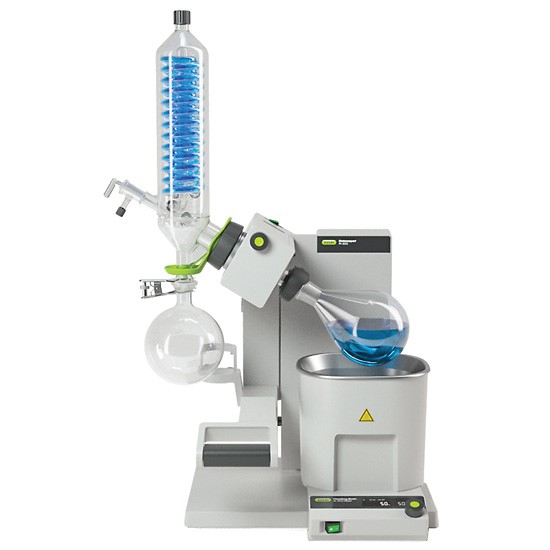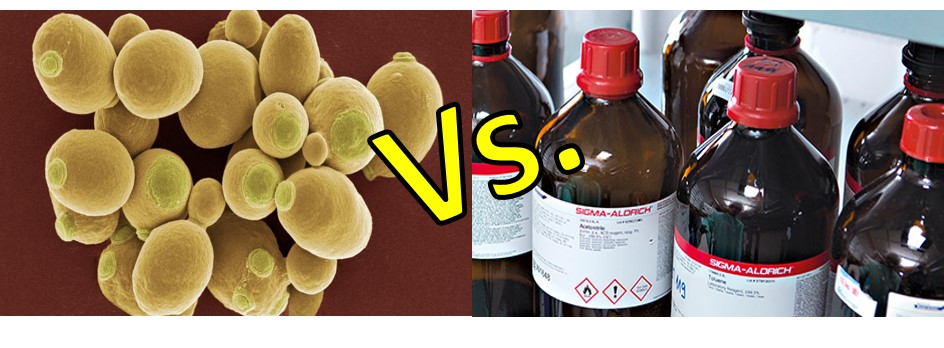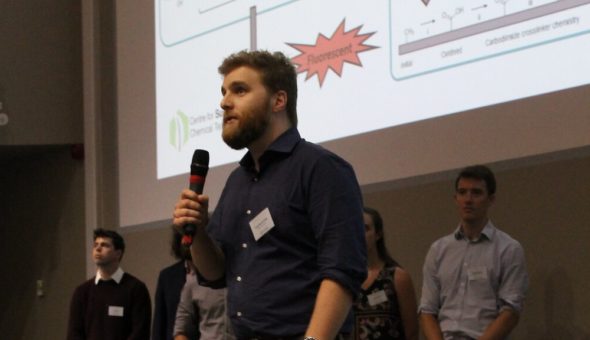Our anonymous Biologist shares snippets of their life in the Chemical Engineering labs.
There were, of course, certain elements of this particular chemical engineering lab familiar to me. Indeed, the running and maintenance of the bioreactors (the main reason for me inhabiting this exotic land of Chemical Engineering) was in a professional sense, my ‘bread and butter’. I was also at home with several other items present, including, but not limited to, the incubators, the hot plates and the sink, although, truth be told, the expertise required to operate these hardly warrants their mention.
However, the comfort blanket I had constructed for myself through experience within four different biological laboratories since my undergraduate days was quickly hoisted from me by the unfamiliarity provided by certain aspects of my new working environment. What follows, as promised within the title, are some impressions and reflections from my early days as a biologist working within the department Chemical Engineering.
1. The Rotavap.

Having shared an office with many chemists in Bath during my MRes, verbal osmosis had rendered me familiar with the term ‘Rotavap’. In addition, as a fan of blending words to save valuable time for super sustainable research, the rotavap, short for Rotary Evaporator, was already firmly in my good books. However as a molecular/cellular biologist, given that the typical volumes I was used to working with are in the <1 mL region, there was very little, if any, cause for intentional evaporating. Therefore imagine for a second you had never seen a rotavap, let alone used one, and were faced with a situation requiring you to do both. To me, the rotavap looked like the kind of apparatus Robin Williams may have used to cook up a batch of Flubber, rather than something people actually used. Turns out, the reality of the situation is far from Williams’ bouncy anthropomorphised green goo with a penchant for salsa music. I’ve since come to learn that rotavaps facilitate the gentle removal of solvents from a sample through evaporation whilst under vacuum, assisted by rotation of the sample. “Clues in the title, ya daft biologist!”, I hear you shout. Well, yes… but these things are always simpler in writing, and the challenge lay more in the operation of the machine rather than its function.
2. Glassware: Acid and Base Baths.
“What the Darwin is this all about?” I muttered to myself the first time I was talked through the glassware cleaning protocol. “To clean glassware, one must first dunk it in a bath containing base and then a bath containing acid?”
I get it now, but at the time, I did not.
3. The Smell
To address the elephant in the room head on, I understand that it is a bit rich of a biologist to grumble about a smelly lab when his own intentionally grows microorganisms. However, as my lab group have the privilege of working with a yeast that produces one of the most commonly used floral aroma compounds in perfumery, the smell in our lab, I’m pleased to say, is akin to that of Kew Gardens. Besides, it’s the folk who work with bacteria that give us biologists the bad nasal rep. The Chemical Engineering lab does however have its own unique (and I’m sure perfectly health and safety compliant) smell. An aroma which, despite my certainty that hazardous chemicals were always handled within fume hoods, still triggered my unskilled hypochondriac nose. So naturally, I fired up the six bioreactors ASAP, filled them all with a litre of our wonderful yeast (with bouquets of rose and hints of leavened bread) and did everybody there a favour. You’re welcome.
-
These ramblings are, of course, to be predicated by stating that being able to work so regularly in two differently equipped labs is a PhD blessing, no matter how many times I’ve had to ask questions like: ‘What does chloroform smell like?’ (Serious question, I smelt something funny) and ‘Which end does the stopcock go?’ (Rotavap jargon guys, calm down). I’m also certain that the chemical engineers would have their own gripes about a biologist swanning in and sticking yeast in pots, no matter how many times he keeps telling people “It’s fine! They smell like flowers!”
Isn’t interdisciplinary research a wonderful thing?
Respond


